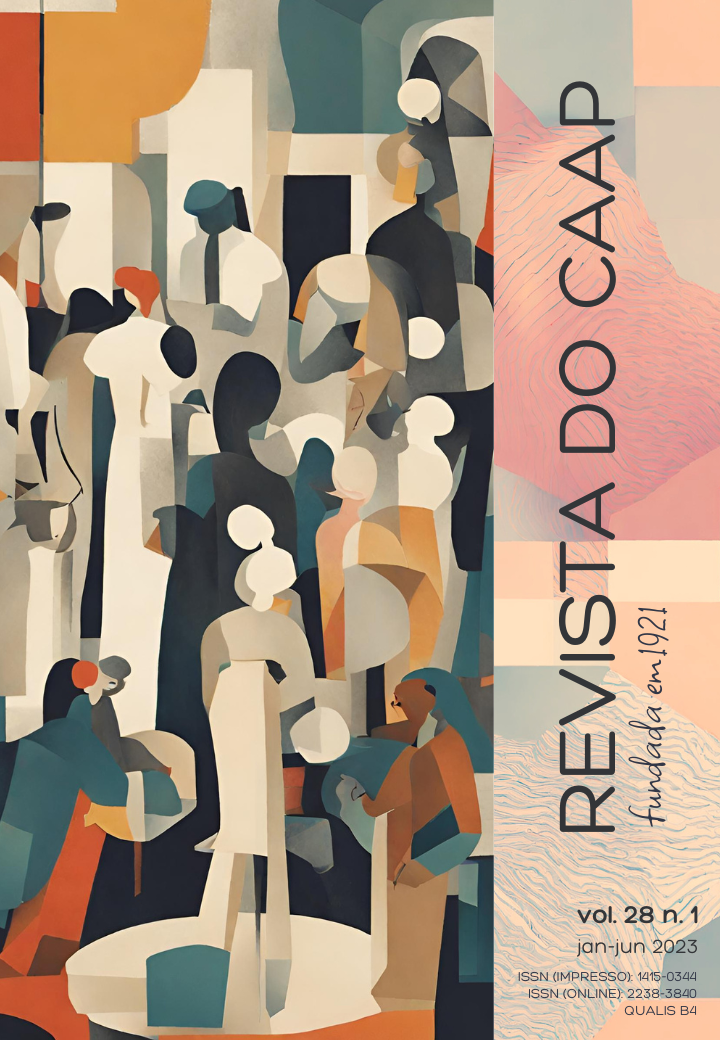Revictimization and the pseudo-contradictory in the criminal processes
an interpretation in light of the law 14.245/2021
DOI:
https://doi.org/10.69881/rcaap.v28i1.48149Abstract
The focus of this study is to analyse the content of the right to be heard in the face of Law 14.245/2021, which brought changes to the Penal Code, Criminal Procedure, and Special Courts Law. The question posed is: does the right to be heard allow for secondary victimization - or re-victimization - of crime victims? The hypothesis argued is based on the perspective that, as a human right, the right to be heard does not condone such an act, even though it is used in a corrupted manner to perpetuate prejudices present in our society. The path taken in the study was as follows: characterization of the right to be heard as a human right (point 1), its use as a mask to perpetuate prejudices (point 2), and the attempt to address the issues raised by Law 14.245/2021 (point 3). The methodology used was bibliographic research, including books and scientific articles on the subject, as well as jurisprudential research, involving opinions of the Inter-American Court of Human Rights regarding the right to be heard. The research results show that the right to be heard is indeed not compatible with secondary victimization, cannot be manipulated to perpetuate prejudices, and should not be denied based on certain victim profiles, as doing so would risk violating the rights of the accused.
Downloads
References
BADARÓ, Gustavo Henrique. Processo penal. 7ªed., rev., atual. e apl., São Paulo: Thomson Reuters Brasil, 2019.
BARROS, Marco Antonio de. Processo penal:da investigação até a sentença. 22ª ed., Curitiba: Juruá, 2019.
CASOLA, F. et al.Proteção ou (Re)Violência? A Operação da Violência Contra aMulher no Sistema de Justiça Criminal. Iniciação Científica CESUMARjan./jun. 2021, v. 23, n. 1, p. 91-101; p. 98. DOI: 10.17765/2176-9192.2021v23n1e9868. Disponível em: https://periodicos.unicesumar.edu.br/index.php/iccesumar/article/view/9868. Acesso em: 01set. 2023.
CORTE IDH. Condición jurídica y derechos humanos del niño. Opinión Consultiva OC-17/02 de 28 de agosto de 2002.Serie A No. 17. Disponível em: https://www.corteidh.or.cr/docs/opiniones/seriea_17_esp.pdf. Acesso em: 24 de jan. de 2023.
CORTE IDH. Caso Álvarez Ramos Vs. Venezuela. Excepción Preliminar, Fondo, Reparaciones y Costas. Sentencia de 30 de agosto de 2019a.Serie C No. 380. _.Disponível em:http://www.corteidh.or.cr/docs/casos/articulos/seriec_380_esp.pdf. Acesso em: 24 de jan. de 2023.
CORTE IDH. Caso Rodríguez Revolorio y otros Vs. Guatemala. Excepción Preliminar, Fondo, Reparaciones y Costas. Sentencia de 14 de octubre de 2019b.Serie C No. 387.Disponível em: http://www.corteidh.or.cr/docs/casos/articulos/seriec_387_esp.pdf. Acesso em:24 de jan. de 2023.
CORTE IDH. Caso Girón y otro Vs. Guatemala. Excepción Preliminar, Fondo, Reparaciones y Costas. Sentencia de 15 de octubre de 2019c.Serie C No. 390.Disponível em: https://www.corteidh.or.cr/docs/casos/articulos/seriec_390_esp.pdf. Acesso em: 24 de jan. de 2023.
COSTA MENDES, A. C.; SCHLEE, M. B. “ESTUPRO CULPOSO”: A REPRESENTAÇÃO DE MARIANA FERRER À LUZ DOS PRESSUPOSTOS DO SISTEMA DE TRANSITIVIDADE.EntreLetras,[S. l.], v. 13, n. 1, p. 208–228, 2022. DOI: 10.20873/uft2179-3948.2022v13n1p208-228. Disponível em: https://sistemas.uft.edu.br/periodicos/index.php/entreletras/article/view/15002. Acesso em: 01set. 2023.
DA FROTA, H. A. A vitimização secundária pela justiça criminal: os casos R V Wagar e Bárbara.Revista de Doutrina Jurídica, Brasília, DF, v. 111, n. 2, p. 317–334, 2020. DOI: 10.22477/rdj.v111i2.631. Disponível em: https://revistajuridica.tjdft.jus.br/index.php/rdj/article/view/631. Acesso em: 01set. 2023.
DEZEM, Guilherme Madeira. Curso de processo penal. 5ªed., rev., atual. e apl., São Paulo: Thomson Reuters Brasil, 2019.
GIMENES, Eron Veríssimo (atualizador); PENTEADO JÚNIOR, Nestor Sampaio. Manual Esquemático de Criminologia.12ªed., São Paulo: SaraivaJur, 2022.
GODINHO, Inês Fernandes. Considerações a propósito do princípio do contraditório no processo penal português.ULP Law Review-Revista de Direito da ULP, v. 2, n. 10, p. 95-107, 2017. Disponível em: https://revistas.ulusofona.pt/index.php/rfdulp/article/view/6306. Acesso em: 16 de dez. de 2022.
GRUBBA, L. S.; VIEIRA DA COSTA, G. Violência Institucional Contra Mulheres Na Justiça Criminal.Prim Facie,[S. l.], v. 22, n. 49, 2023. DOI: 10.22478/ufpb.1678-2593.2023v22n49.64797.Disponível em: https://periodicos.ufpb.br/index.php/primafacie/article/view/64797. Acesso em: 01set. 2023.
PACELLI, Eugênio. Curso de processo penal. 22ªed., São Paulo: Atlas, 2018.
QUINTANILHA VERAS NETO, F.; LEONARDO AMORIM, A.; REJANE SILVA MACIEL DIOGO, H. As dificuldades do corpo negro brasileiro ser “vítima”: uma análise da engenharia do terror racial pela lente teórica de(s)colonial e da vitimologia crítica.Revista da Faculdade de Direito da Universidade Federal de Uberlândia,[S. l.], v. 51, n. 1, p. 603–627, 2023.DOI: 10.14393/RFADIR-51.1.2023.68324.603-627. Disponível em: https://seer.ufu.br/index.php/revistafadir/article/view/68324. Acesso em: 01set. 2023.
RANEA, Lotayf; ROBERTO, G. Principio de bilateralidad o contradicción.Revista. Publicada en Revista la Ley, 2011. Disponível em: https://www.acaderc.org.ar/wp-content/blogs.dir/55/files/sites/55/2021/11/ppricontradiccion.pdf. Acesso em: 20 de jan. de 2023.
SANTOS, A. N. dos; GOMES JUNIOR, L. M.; CHUEIRI, M. F.. Da imprescritibilidade do direito humano fundamental ao devido processolegal, ao contraditório e à ampla defesa.Research, Society and Development,[S. l.], v. 10, n. 15, p. e427101523091, 2021. DOI: 10.33448/rsd-v10i15.23091. Disponível em: https://rsdjournal.org/index.php/rsd/article/view/23091. Acesso em: 19 dez. 2022.
VIEIRA, Vitoria Rodrigues. A palavra da vítima como elemento suficiente de convicção para condenação dos acusados de crime de estupro. 2022. 46 f. Trabalho de Conclusão de Curso (Graduação em Direito) —Universidade Federal de Uberlândia, Uberlândia, 2022. Disponível em: https://repositorio.ufu.br/handle/123456789/34760. Acesso em: 28 de nov. de 2022.
Published
How to Cite
Issue
Section
License
Copyright (c) 2023 Gabriel de Oliveira Pires

This work is licensed under a Creative Commons Attribution 4.0 International License.


